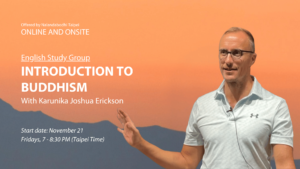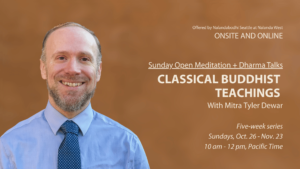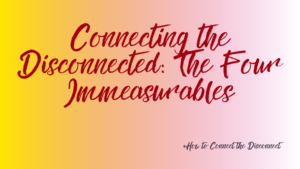Appreciation is taking the time to notice what’s already here, what we have right now in this very moment. This capacity gives us the inner strength to work with our suffering in a skillful way, and to stay connected to each other as we do.
––Yongey Mingyur Rinpoche
It’s Mothers’ Day. My mother is no longer alive, and I don’t have children. It’s so easy for me to isolate and feel sorry for myself on days like this. If I’m not mindful, “poverty mentality” can take over: I begin to feel jealous and competitive, resentful of others happiness. Of course, it doesn’t have to be Mothers’ Day for poverty mentality to arise. The habit of feeling like we don’t have enough is part of being human, but through practice, can be overcome this habit.
The answer to poverty mentality is appreciation and appreciative joy. When we rejoice in others’ happiness, we come to appreciate ourselves and, as Mingyur Rinpoche says, “to notice what we have right now in this very moment.”
Nurturing Appreciative Joy – An Exercise
- Sit in an upright and relaxed posture and bring your attention to your breath.
- Notice any areas of tension in your body and breathe into those areas with kindness.
- Allow yourself to feel sadness, jealousy or any other difficult feelings you may be experiencing.
- Bring to mind someone who has what you value, the thing you think you are lacking. Extend appreciation for their happiness. Connect with a sense of joy that they have this good situation.
- Notice the ways in which you and the other person are similar and connected – both in your joys and in your sorrows.
- Extend that sense of appreciative joy to yourself – for your interconnectedness and for all you have “right now, in this very moment.”
Appreciation is the answer to overcoming poverty mentality. By rejoicing in and appreciating others’ good fortune, we can open our hearts to ourselves and to the world.

Beth Patterson is a psychotherapist specializing in grief, loss and life transitions. In her work, Beth relies on Buddhist psychology, mindfulness based cognitive therapy and body-centered therapies. Her articles and ebook are available at www.bethspatterson.com. Beth is a longtime Buddhist practitioner and a student of Dzogchen Ponlop Rinpoche.






